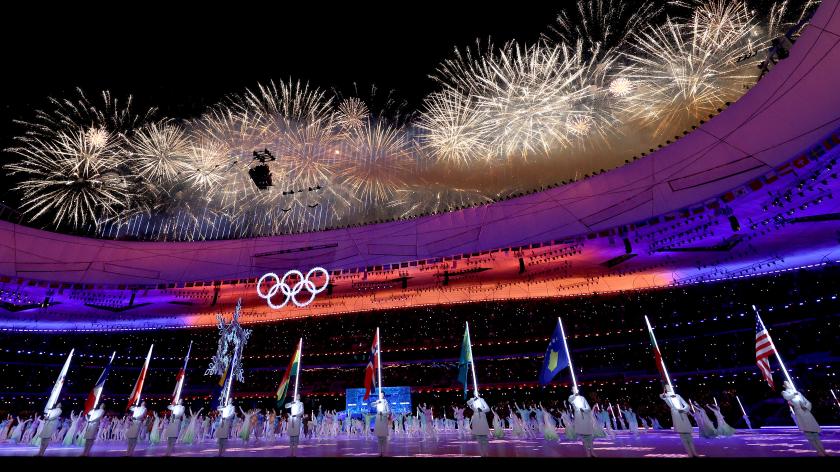Norway Sweeps at 2022 Winter Olympics
Closing ceremony of the 2022 Winter Olympics In Beijing, China on Sunday, Feb. 20.
March 9, 2022
After a historic and controversial 2022, Winter Olympic games flanked by the controversy surrounding COVID-19 restrictions and yet another Olympic doping scandal, Norway escaped Beijing with the most gold medals and the most overall medals. The final top 10 rank is as follows, in order: Norway, Germany, China, United States, Sweden, Netherlands, Austria, Switzerland, ROC (Russian Olympic Committee), France.
A total of 109 medals were awarded during the games, with the leader of the pack, Norway, claiming a high of 37 total medals, five more than the second place ROC. Norway also led the count with a winter-games record of 16 gold medals, as Germany took second place with 12. It was a whirlwind Olympic game for Norwegians, who saw their winter Olympics dominance stretch further in 2022. For years, Norway has entrenched itself as the royal country of the winter games, consistently outperforming in the cold when it matters most. Biathlete Johannes Thingnes Bo led Norway with five total medals, four of them being gold. Fellow biathlete Marte Olsbu Roiseland also brought five medals home for the country, three of them gold and two bronze. The biathlon was a big winner for Norway, taking home 14 total medals, with six gold.
Team USA put together a commendable performance in Beijing, garnering 25 total medals and some truly memorable performances. No American was a more prominent name during these games than figure skater Nathan Chen, who captured his first gold medal in record-breaking fashion, finishing the Men’s Short Program with a score of 113.97, the highest recorded score for a winter game. At just 22 years old, Chen is looking at a long, illustrious career as he attempts to etch his name in immortality in the future.
Team USA legend Shaun White competed in his final Olympic games this year, as the legendary snowboarder is calling it a career after a late run to reach the finals of the halfpipe competition. While White rallied to get to the final, he just missed the podium, finishing fourth in his last Olympic contest. While the snowboarding icon can’t walk away from the sport without one final gold medal, there is no doubt that White has etched his name in history as one of the most iconic Olympians of this generation, if not of all-time. After the final, a teary-eyed White was greeted with a standing ovation for a fantastic career.
In a clip posted on YouTube by NBC Sports, home of this year’s Olympic games, White was emotional speaking to fellow teammates.
“I’m proud, I’m happy… I can hold my head up,” White said in a heart-wrenching video. “I wanted more, but I always would. Even if I got third, I would have been like, ‘I could’ve had second’… you know me, but I’m happy. It’s an end of an era.”
It wasn’t all bad for Team USA snowboarding, as Chloe Kim returned to defend her halfpipe title and claimed two gold medals during the 2022 games.
Amid Olympic glory came Olympic controversy, as 15-year-old Russian skater Kamila Valieva tested positive for a banned drug yet was still permitted to compete in the games due to her status as a minor. Valieva returned a drug test yielding results that saw three banned substances used to enhance heart endurance, substances that have forced other Olympic athletes to be banned from the games. However, Valieva, who helped propel Russia to a gold medal, was permitted to continue participating in the games, a point of controversy for many. This has increased talk about Russia’s participation in the Olympic games. They are already serving an Olympic ban for numerous banned substances (hence why they participate in the games as the Russian Olympic Committee and not as Russia). With their young star already testing positive for numerous substances, many have pondered whether Russian athletes should be allowed at the Olympic games in any capacity moving forward.
Hovering over the entirety of the Olympic Games were Beijing’s COVID-19 restrictions as the world continues to battle against the pandemic. Thankfully, due to Beijing’s strict quarantine protocols, infection numbers stayed low and did not directly affect many events. China’s bubble-like restrictions are a central talking point across the world as they have had a very long and deadly battle against COVID, but props to Beijing for being able to safely ensure a healthy 2022 Winter Olympic Games for the world to marvel at







